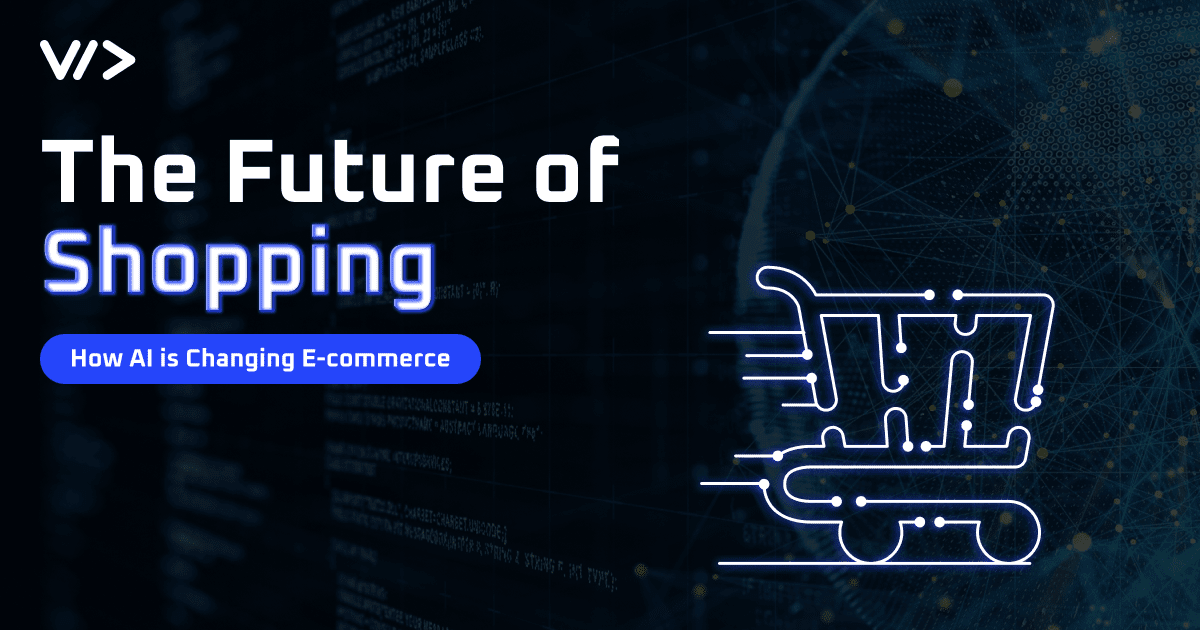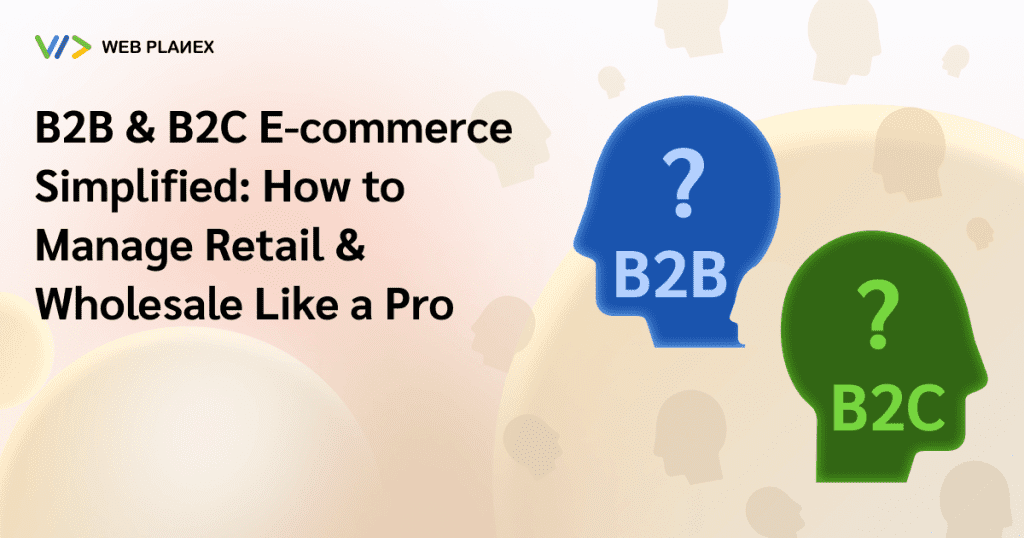
The term AI (Artificial Intelligence) has been on everyone’s lips ever since its launch. People of all age groups talk about its potential negative and positive impacts on various industries in the future.
Given its ability to carry out tasks automatically and quickly as compared to humans, AI has given numerous businesses across the globe a reason to adopt a new business model.
According to the data, the global AI market has reached roughly $196 billion and is expected to grow by several billion more in the coming years.
The e-commerce industry has begun leveraging AI to cater to its vast customer base. Evolving e-commerce businesses prioritize integrating transformative AI technology into their daily operations, aiming to provide customers with a personalized shopping experience.
There is no denying that AI has almost changed the way people shop online. In this blog, we will discuss how AI is transforming the e-commerce world.
AI Technologies That E-commerce Companies Can Implement
Here are the AI technologies that e-commerce companies use to streamline their routine tasks.
Machine Learning:
Machine learning algorithms help e-commerce businesses improve inventory management, predict sales trends, analyze customer interactions, and automate logistics, all contributing to an enhanced customer experience. ML helps automate decision-making processes and production recommendations as well.
Data Mining:
The majority of e-commerce firms possess ample data resources. AI streamlines the process of gathering, analyzing, and utilizing this data to generate actionable insights.
Natural Language Processing:
NLP constitutes a vital component enabling voice search and speech recognition. As a subset of AI, it empowers computers to comprehend both written and spoken language. NLP finds various applications, such as spam detection and the development of chatbots.
Sentiment Analysis:
Sentiment analysis helps e-commerce businesses monitor customer feedback and get deeper insights into their audience’s requirements, which helps them handle issues like identifying dissatisfied customers and promptly addressing their queries to meet customer requirements.
Predictive Analytics:
Leveraging big data and statistics, predictive analytics helps businesses identify customer needs, optimize marketing channels, forecast buying trends, and anticipate customer behavior. Predictive analytics unlocks the power of personalization. It allows businesses to anticipate their audience’s requirements and interests, enabling them to deliver content that resonates most effectively.
Computer Vision:
Computer vision, an AI technology, empowers computers to identify and categorize visual images accurately. E-commerce firms are leveraging this technology to enhance product search functionalities and recommendation systems. It can interpret and evaluate visual data from both images and videos, similar to human cognition.
Deep Learning:
Deep learning harnesses vast datasets to forecast trends, predict user actions, and delve into user behavior at a more profound level than traditional machine learning methods. Its algorithms can track an individual’s buyer’s journey and utilize this data to forecast the types of purchases they are likely to make.
How AI Is Changing E-commerce?
AI can undeniably perform tasks much faster than humans. It has the potential to transform your e-commerce business. Let’s discuss how.
Advanced Sales Forecasting:
Leveraging past data, seasonal patterns, and market trends, AI facilitates more accurate sales predictions. AI-powered forecasting tools utilize machine learning techniques to analyze demographics and external influences.
Sales forecasting aids businesses in achieving improved cash flow and shorter sales cycles, resulting in reduced expenses and improved logistics and pricing strategies.
Transformative Representation of Product Visuals:
Numerous well-known e-commerce platforms are incorporating visual search to attract a larger customer base. Through this feature, shoppers can search online using images rather than relying solely on text or keywords.
At times, customers experience disappointment when products fail to meet their expectations. To address this issue, sellers can utilize AI to present items in a more realistic manner, which gives customers a personalized shopping experience.
Improve Customer Experience:
Online shopping experiences are enhanced by AI through an in-depth analysis of customer data, which facilitates personalized engagement, real-time insights, and customized product suggestions.
In contrast to traditional retail, AI-driven platforms utilize browsing and purchase history to precisely forecast preferences and assist customers throughout their journey, which leads to higher levels of satisfaction and sales.
Personalized Marketing:
Marketing personalization powered by AI customizes campaigns and promotions based on individual customer preferences, thereby enhancing ROI. E-commerce platforms use AI for generating accurate reports and optimizing campaigns.
Thanks to AI’s capacity to offer precise product recommendations and advertisements, customers relish a personalized shopping journey tailored to their browsing history.
Smarter Inventory Control:
AI aids businesses in forecasting future demand for more intelligent inventory management using predictive analytics. By analyzing past sales data, it anticipates trends and maintains optimal inventory levels.
By using real-time sensor data, businesses can monitor product sales effectively, optimizing inventory for both physical stores and online platforms. Customer data provided by AI helps businessmen make the right decision.
AI-Driven Dynamic Pricing:
AI-powered dynamic pricing enables businesses to adjust prices and offerings in response to real-time customer behavior, global shifts in supply and demand, and competitive activities, optimizing their strategies for maximum effectiveness.
AI-Powered Chatbots and Virtual Assistants:
By offering 24/7 customer support, chatbots and virtual assistants act as tireless representatives for e-commerce businesses, boosting service quality and response times. These automated systems identify customer intentions and effectively manage routine tasks, enabling human agents to concentrate on tackling more complex issues.
Prevent Fraud:
Fraudulent transactions can be swiftly pinpointed and prevented by AI-powered fraud detection systems. With real-time analysis of data and transaction monitoring, AI can spot suspicious activity, like unusually high-value transfers or a flurry of transactions originating from unknown locations. AI can expose obscure patterns, identifying fraudulent activities that humans might fail to notice, thereby protecting customer data from unauthorized access.
Automate Supply Chain Operations:
AI plays a crucial role in optimizing supply chains. It accelerates operations by predicting disruptions and automating daily tasks. By suggesting optimal delivery routes and proactively identifying potential issues, it streamlines the delivery process.
AI empowers e-commerce enterprises to diminish expenses linked to surplus inventory or rushed shipping. This is important for startups with limited resources who want to maintain efficiency.
Wrapping Up
Artificial Intelligence (AI) has changed the way e-commerce businesses do. The growing use of AI in eCommerce promises significant benefits for businesses due to its ability to deliver quicker, more cost-effective, and highly efficient solutions while minimizing the likelihood of human errors.
Several E-commerce brands are adopting artificial intelligence to enrich analytics, craft personalized experiences, and maintain a competitive edge in this competitive e-commerce world.




